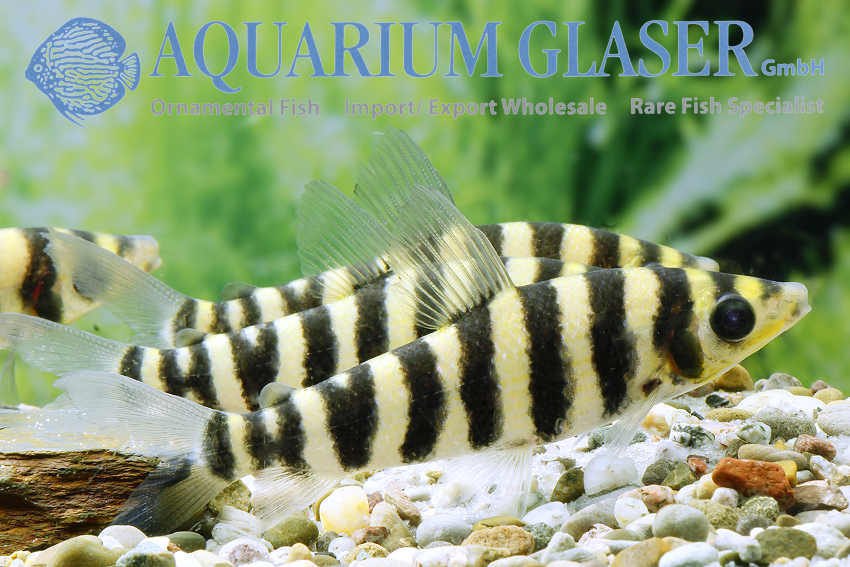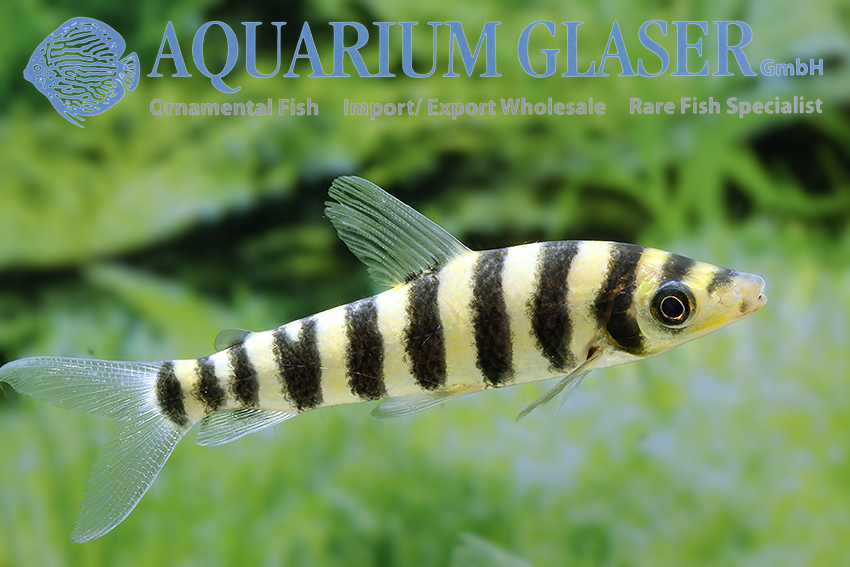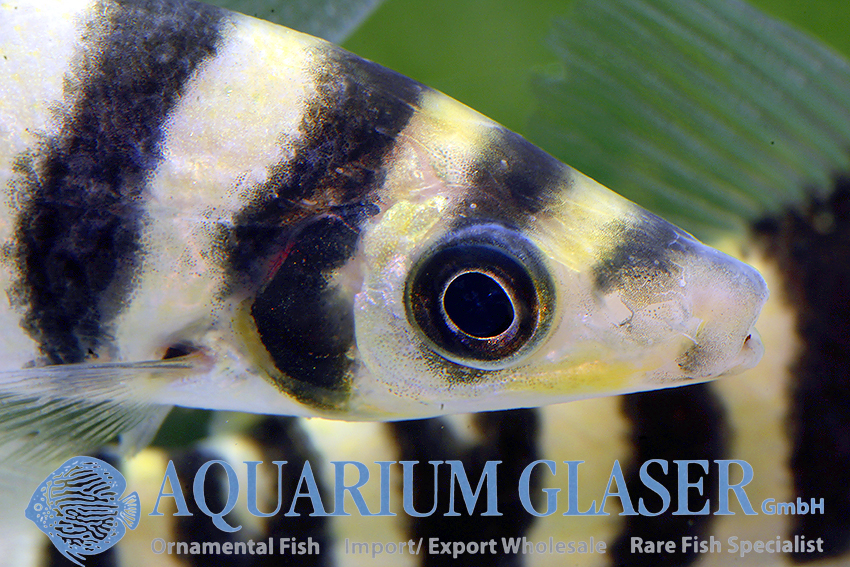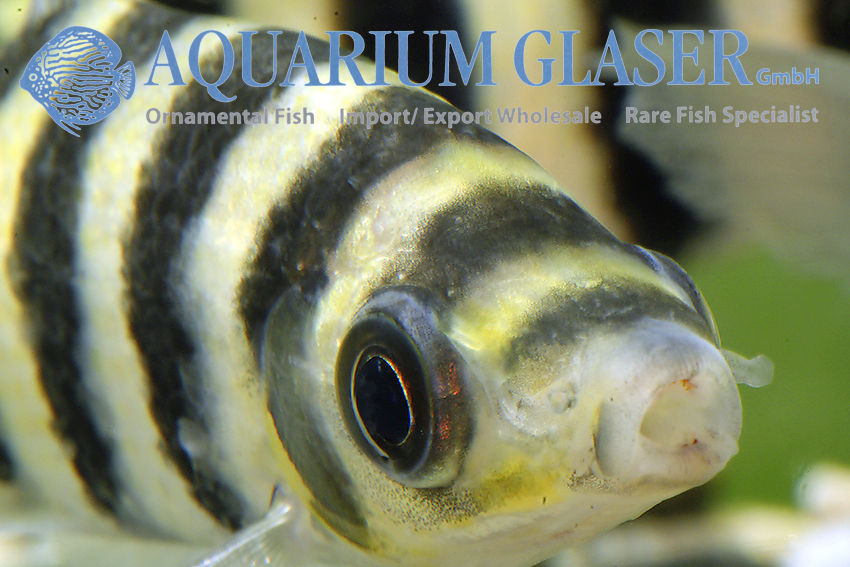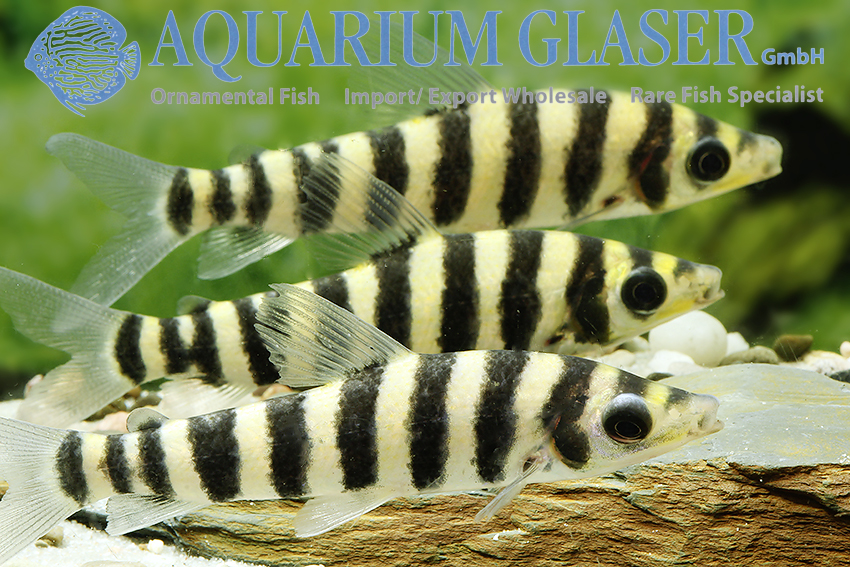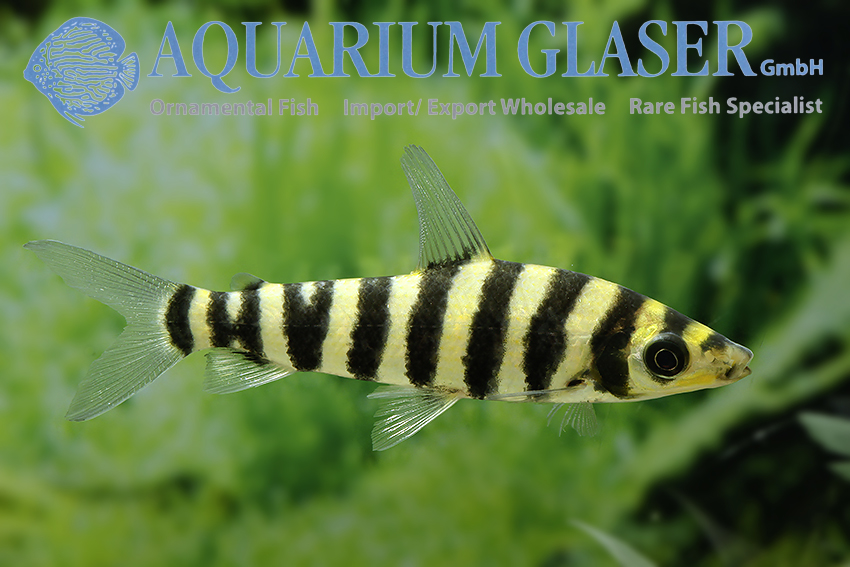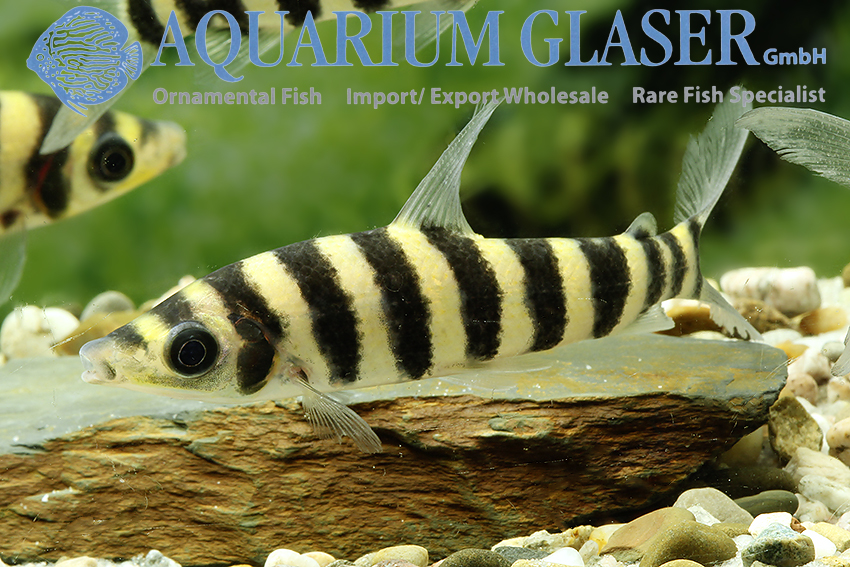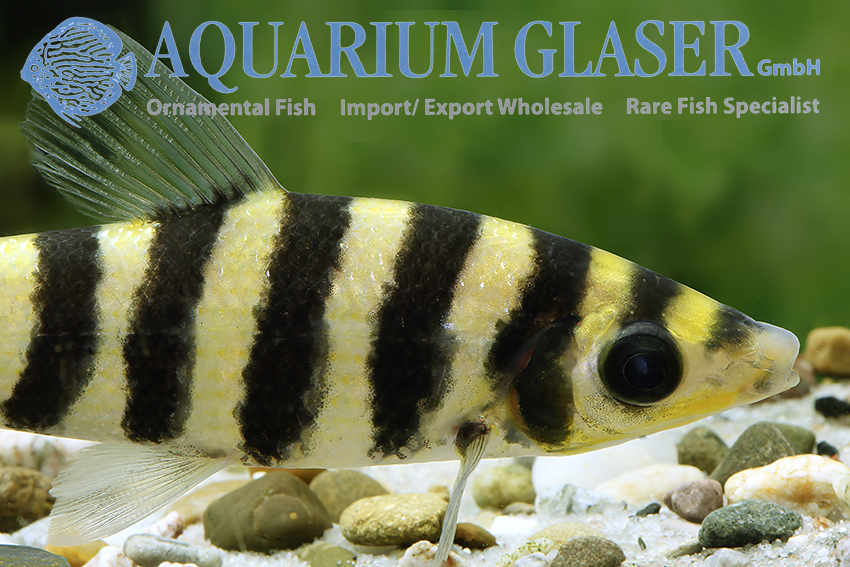The tetras of the genus Leporinus (the genus name is a derivative of the Latin word “lepus” for “hare”) belong to the characteristic river fishes of South America. They owe their name to the shape of their mouth in combination with the elongated “hare teeth” in the lower jaw of some species, which reminded the genus descriptor of hare snouts. About 90 species have been scientifically described. Exactly how many species there are, however, is a matter of debate, as it is difficult to distinguish one species from another.
The only species regularly available in the pet trade is certainly Leporinus fasciatus. On golden-yellow, sometimes silver-white ground the vertical bands stand out effectively. This widespread species grows to a length of about 40 cm and we currently have both wild caught specimens from Venezuela and captive bred specimens from Indonesia in our stock. The pictures show wild specimens.
Very similar is Leporinus affins, which grows about 25 cm long. The word affinis means “similar” (meaning “similar to Leoprinus fasciatus”) and that fits it very well. The outward similarity of the two is striking at first, but you can clearly see that they are different species if you know what to look for. The easiest way to tell them apart is to look at the body ringlets below the adipose fin: in L. affinis there is one broad band here, while in L. fasciatus there are two narrow bands that are much closer together than the rest of the body bands.
Leporinus are very interesting aquarium fishes if you can provide the space for them. Among themselves they form a hierarchy. Important is additional vegetable food (leafy plants, like spinach, salads, dandelion etc.), also water plants are grazed with stump and stem. Concerning the water values the fish are undemanding, however humic substances promote the coloration. In soft, slightly acidic water they are very, very colorful.
The aquarium must be covered absilt completely: Leporinus jump incredibly accurate!
For our customers: Offsprings from Indonesia have code 265903, wild caught (currently from Venezuela) have code 265905 on our stocklist. Please note that we supply exclusively to wholesalers.
Text & photos: Frank Schäfer





